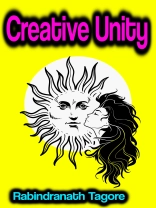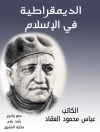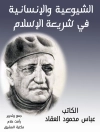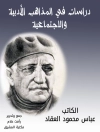Creative Unity Rabindranath Tagore — Creative Unity by Rabindranath Tagore consists of ten lectures that the author gave in 1922Rabindranath Tagore (1861-1941) who was a gifted Bengali Renaissance man, distinguishing himself as a philosopher, social and political reformer and a popular author in all literary genres. He was instrumental in an increased freedom for the press and influenced Gandhi and the founders of modern India. He composed hundreds of songs which are still sung today as they include the Indian and Bangladeshs national anthems. His prolific literary life has left a legacy of quality novels, essays and in this volume his shorter works. Gitanjali, one of his most famous works, earned him the distinction of being the first Asian writer to receive the Nobel Prize in Literature in 1913
Об авторе
Awarded the Nobel Prize in Literature in 1913 ‘because of his profoundly sensitive, fresh and beautiful verse, by which, with consummate skill, he has made his poetic thought, expressed in his own English words, a part of the literature of the West.’Tagore modernised Bengali art by spurning rigid classical forms and resisting linguistic strictures. His novels, stories, songs, dance-dramas, and essays spoke to topics political and personal. Gitanjali (Song Offerings), Gora (Fair-Faced), and Ghare-Baire (The Home and the World) are his best-known works, and his verse, short stories, and novels were acclaimedor pannedfor their lyricism, colloquialism, naturalism, and unnatural contemplation. His compositions were chosen by two nations as national anthems: India’s Jana Gana Mana and Bangladesh’s Amar Shonar Bangla.












